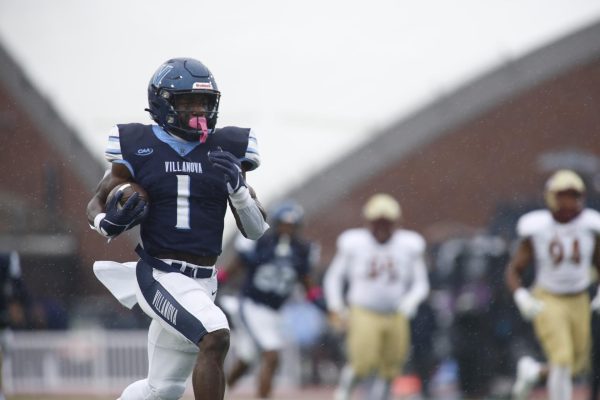KANE: ‘The Blueprint’: Mainstream music, indie message
September 15, 2009
This past week “The Blueprint 3” hit shelves in stores across the country and immediately became the top seller on iTunes. Last Friday also happened to mark the eighth anniversary of the release of Jay-Z’s original, “The Blueprint,” one of the best rap albums of the past decade.
Do you remember where you were the day “The Blueprint” came out? The morning before, the skies were quiet, and there was no hint that in the near future an earth-shattering album would come out with the potential to create a paradigm shift in how we view hip-hop.
After its release, people proclaimed that rap music would never be the same. Few times in recent years had such a potent blend of mainstream, underground, melodic, hard, playful, clever and above all, effective yet simplistic beats and lyrics been mashed together so perfectly.
The material itself wasn’t necessarily anything revolutionary. “The Takeover,” for example, employs a sparse but driving beat, with Jay-Z using his refined natural lyrical talent to assert his dominance in the rap game.
In many ways, though, the album served as a rope in a cultural tug of war. In a nod to one direction, there are the overtly commercial aspects of the album, such as the tongue-in-cheek second single, “Girls, Girls, Girls” with a guest spot by Eminem.
Yet, at the same time, the music floats on production that thoughtfully weaves in soul samples from songs that inspired Jay-Z, and singles like “Song Cry” and the unexpectedly telling “Izzo (H.O.V.A.)” contain verses of refreshingly honest emotion.
But while the general public was receptive to “The Blueprint” upon its release, it didn’t take long for it to be essentially forgotten. It was much easier to take the commercial and superficial lessons from the album than the more difficult, thought-provoking ones.
By 2002, “Song Cry” had lost the Grammy Award to Nelly’s “Hot in Herre.” By March of 2003, a mostly disengaged public watched as 50 Cent’s “Get Rich or Die Tryin'” became the top selling album, mostly on the backing of hit single “In da Club.”
This isn’t to say that rap music died after “The Blueprint.” Mos Def included a tweaked version of “The Takeover” on his experimental, but largely ignored October 2004 album, “The New Danger.” Kanye West, one of the main producers of “The Blueprint,” emerged as an important voice in rap music.
There were flickers of public awareness in the fall of 2006, when Lupe Fiasco released his debut album and deservedly became a household name. And, of course, who can forget Nov. 4, 2008, when millions celebrated as Q-Tip, former MC of A Tribe Called Quest, released “The Renaissance,” his brilliant but long-delayed follow-up to his 1999 solo debut.
Nonetheless, these moments have been few and far between. That’s probably why Jay-Z himself was recently spotted at a Grizzly Bear concert, where MTV quoted him as saying, “The music that they’re making and the connection they’re making to people is really inspiring. So I hope that [indie rock] has a run where they push hip-hop back a little bit, so it will force hip-hop to fight to make better music.”
I can’t help but also remember part of an old Mos Def song, where the rapper opines, “You know what’s gonna happen with hip-hop? Whatever’s happening with us … if we doin’ alright, hip-hop is gonna be doin’ alright.”
Eight years after “The Blueprint,” how are we doing? On the whole, we’re still afraid. We’re more willing to treat “The Blueprint” as an insignificant blip on the radar screen than to use it as an actual blueprint for being more socially aware and living more meaningful lives.
There are people willing to engage in serious issues, but to build on what Jay-Z said, they seem to be the ones in the indie crowds, the ones who go purposefully out of their way to discover something a little more challenging.
The difference between mainstream and indie, and between the types of people listening to them, has nothing to do with intelligence. It just has to do with one’s ability to confront realities.
This is something humans have struggled with for eternity. But who knows? Maybe more people will start to listen to the new sounds bands like Grizzly Bear are putting out.
——————–
Jonas Kane is a senior English and political
science major from Harrisburg, Pa. He can be reached at [email protected].










